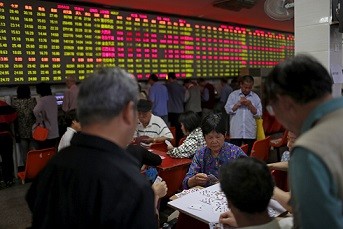Several people from China’s rural villages are investing in the stock market despite the recent sharp falls in the country’s two major indexes, the Global Times reported.
In Nanliu village in northwest China's Shaanxi Province, around 20 percent of villagers have invested their savings in stocks since 2006.
Media reports have also showed that several other villages, such as one in Dongyang County, Zhejiang Province, are also into the stock market.
The report said that many of the villagers who invest in the stock market used their saving and also made profits. The villagers said that they continue to invest, even though the stock market in China remains volatile after its dramatic slump on June 26.
According to a survey published by the National Bureau of Statistics in April, the total number of rural people who choose to do work in sectors other than agriculture had grown to 274 million by the end of 2014, up 1.9 percent from the previous year.
The survey said that many villagers are looking for ways to be busy and at the same time, earn money outside of the busy harvest period.
During the 1970s, it was common practice for the residents of Nanliu to earn extra cash by recycling hair, waste, old mobile phones and TVs.
The report said that stock market investing was introduced to the first batch of villagers in 2006, after which many of them, especially the male villagers aged 35 to 60, have started supplementing their income by investing in the stock market.
According to the report, it was common for the villagers to sit around and play mahjong before they became investors.
Hu Xingdou, a political science professor at the Beijing Institute of Technology, told the Global Times that people from the rural or urban working class are more likely to invest in stocks.
According to a report published by China Business News Weekly, these people also make up half of the total number of Chinese investors, while investors with master's degrees amount to less than only 4 percent of the total number.
The Shenzhen Stock Exchange said that there were a total of 120 million investors in the stock market in China at the end of 2014.



























